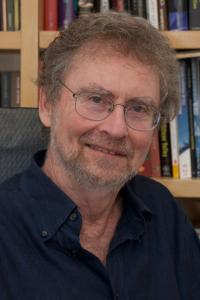- Speaker
- Prof. Luiz Davidovich
- Federal University of Rio de Janeiro, Brazil
- Abstract
The emergence of the classical world from quantum mechanics is a subtle problem, which was raised by Schrödinger in one of his papers in 1926 [1], and to which he came back in a paper in 1935 [2], containing the famous discussion on the possibility of existence of coherent superpositions of classically distinguishable states of macroscopic systems ("Schrödinger cat").
A closely related question concerns the dynamics of entangled systems under the action of the environment. What is the dynamical law? How does it scale with the number of particles? How robust is the entanglement, as the number of particles increases? These questions are not only important from a conceptual point-of-view, but may play an important role in the assessment of the robustness of quantum computers, since entanglement seems to be an important resource for many quantum computation tasks.
The development of new concepts and new techniques for the precise manipulation of single atoms and photons has led to the detailed experimental investigation of these questions. This talk will review recent work, theoretical [3,4] and experimental [5-8], addressing these questions. For reviews, see [9,10].
[1] E. Schrödinger, The continuous transition from micro to macro-mechanics. Die Naturwissenschaften 28, 664 (1926).
[2] E. Schrödinger, Die gegenwärtige Situation in der Quantenmechanik. Die Naturwissenschaften, 23, 807 (1935).
[3] L. Aolita, R. Chaves, D. Cavalcanti, A.Acín, and L. Davidovich, Phys. Rev. Lett. 100, 080501 (2008).
[4] Daniel Cavalcanti, Rafael Chaves, Leandro Aolita, Luiz Davidovich, and Antonio Acín, Phys. Rev. Lett. 103, 030502 (2009).
[5] M. P. Almeida, F. de Melo, M. Hor-Meyll, A. Salles, S. P. Walborn, P. H. Souto Ribeiro, and L. Davidovich, Science 316, 579 (2007).
[6] O. Jiménez Farías, C. Lombard Latune, S. P. Walborn, L. Davidovich, and P. H. Souto Ribeiro, Science 324, 1414 (2009).
[7] O. Jiménez Farías, G. H. Aguilar, A. Valdés-Hernández, P. H. Souto Ribeiro, L. Davidovich, and S. P. Walborn, Phys. Rev. Lett. 109, 150403 (2012).
[8] G. H. Aguilar, A. Valdés-Hernández, L. Davidovich, S. P. Walborn, and P. H. Souto Ribeiro, Phys. Rev. Lett. 113, 240501(2014).
[9] Leandro Aolita, Fernando de Melo and Luiz Davidovich, Rep. Prog. Phys. 78, 042001 (2015).
[10] L. Davidovich, Physica Scripta 91, 063013 (2016).
- About the Speaker
Luiz Davidovich is Professor of Physics at the Federal University of Rio de Janeiro. He got his Ph. D. at the University of Rochester in 1976, and has worked since then in quantum optics and quantum information. His major contributions are in the topics of decoherence, entanglement, laser theory, and quantum metrology. He was awarded the Brazilian Grand-Cross of the National Order of Scientific Merit in 2000, the 2001 Physics Prize of The World Academy of Sciences (TWAS), and the most important prize for science in Brazil, the Admiral Alvaro Alberto prize, awarded by the Brazilian National Research Council in 2010. He is fellow of the Optical Society of America and of the American Physical Society, and Foreign Associate of the National Academy of Sciences (USA). He has been President of the Brazilian Academy of Sciences since 2016.
- Date&Time
- 2017-12-11 3:00 PM
- Location
- Room: Conference Room I




